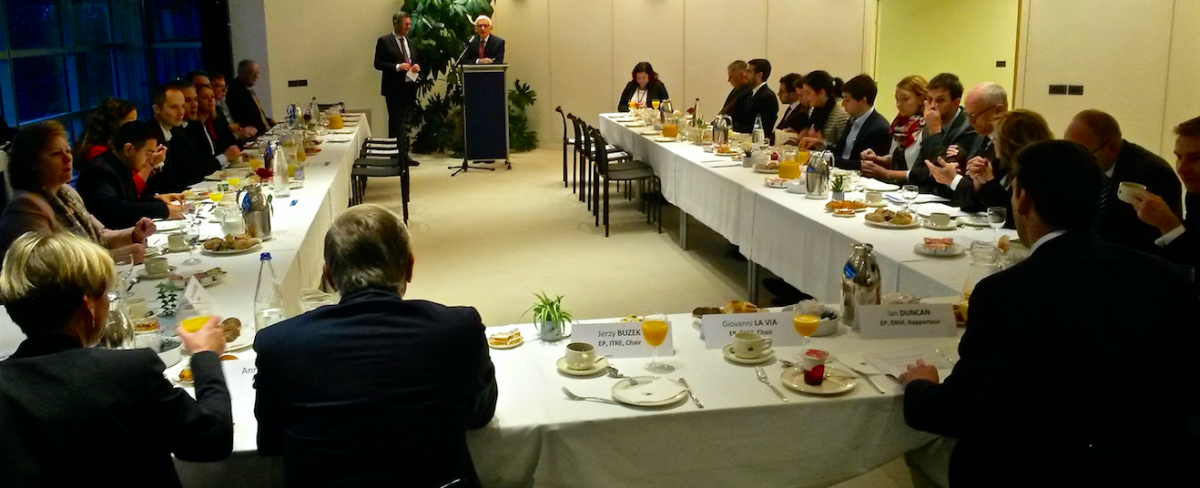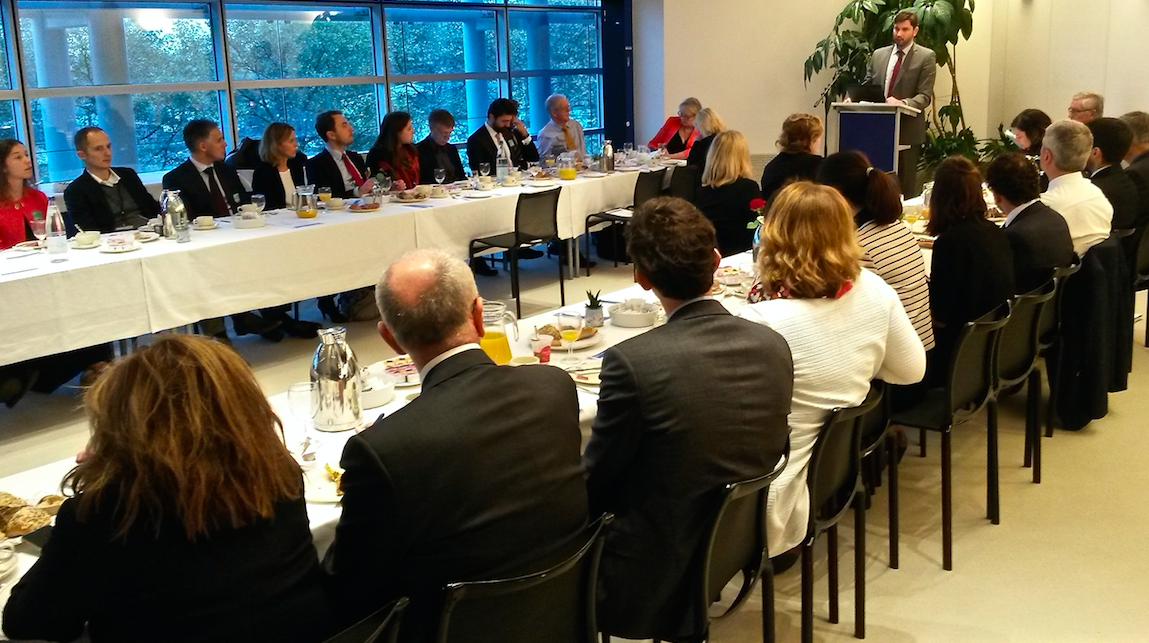
Power sector priorities in the EU ETS Directive revision
Date
Sections
Strasbourg, 26.10.2016
EURELECTRIC met with the Members of the European Parliament on the EU ETS revision, with participation of the Polish Electricity Association’s (PKEE) representative presenting the position of the European power sector on the compensatory mechanisms.

A working breakfast with MEPs responsible for the key EU ETS issues took place in the European Parliament. In the event organized by EURELECTRIC participated among others Mr. Giovanni La Via, Chair of the ENVI Committee, Mr. Ian Duncan, EP ENVI rapporteur and Mr. Jerzy Buzek, Chair of the ITRE Committee. Mr. Maciej Burny, Secretary of the Management Board of the Polish Electricity Association (PKEE) was one of the speakers representing EURELECTRIC during this event.
With honourable guests from ENVI and ITRE committees as well as European energy companies, this meeting was conducted under the theme: “Power sector priorities in the EU ETS Directive revision”. On behalf of EURELECTRIC, Mr. Maciej Burny presented the European power sector’s position on the compensatory mechanisms (free allocation of carbon permits and Modernisation Fund – Art. 10c and Art. 10d of the EU ETS Directive proposal), which is fully in line with the PKEE’s position.
Mr. Burny highlighted the fact that the free allocation after 2020 should be continued via the system of National Investment Plans (NIP). It is the only possible way of limiting the impact of the EU ETS on electricity price increases. When applying the NIP, we mitigate electricity price increases through lower generation costs for power plants under the EU ETS in countries with a GDP per capita lower than 60% of the EU average (as the eligibility criterion).
“Tendering for the projects which balance free allowances instead of the NIP, as proposed by the Commission in the legislative proposal, will not allow to limit electricity price increases for our clients in the eligible Member States. Allowances might in effect be allocated to entities, which do not have installations in the ETS. Therefore, the price setters in the electricity market may not benefit from the derogation. Under this scenario, assumed aim of the derogation – mitigating the costs of climate policy for households and industry – will not be achieved. Derogation structure as presented by the EC will not have any economic sense in this form” – as EURELECTRIC’s representative underlined.
Mr. Burny also mentioned that free allowances and resources from these compensation mechanisms will not be allocated to new coal-fired generation units (as it is not possible under the EU state aid regulations). Therefore, concerns presented by some of MEPs revealed by the amendments including maximum emission performance standards for eligible projects, are not justified. As Mr. Burny said “we need an evolution made through improving the functioning of the NIPs – not a revolution in the form of tenders and the bidding process”.
Mr. Burny referred also to the Modernisation Fund, underlining that the beneficiary Member States shall be allowed to independently select and manage eligible projects. He referred also to the Member State’s right to determine the conditions for exploiting its energy resources, choice between different energy sources and the general structure of energy supply. This treaty-based rule shall be respected in the directives and regulations addressing the EU climate and energy policy.
EURELECTRIC’s representative has also indicated that the Modernisation Fund’s management should not be different from the decision-making scheme which is applied to EU structural funds. Therefore, the beneficiary Member States shall be entitled to make their own decisions concerning selected projects.
In concluding remarks, Mr. Burny stated that compensatory mechanisms shall boost new investments in RES, grid infrastructure as well as the modernisation of existing conventional generation units. In this respect, it is necessary to avoid legal solutions, which – due to the unjustified concerns about financing new coal – may lead to unnecessarily increase bureaucracy interference in business decisions in the energy sectors of the eligible Member States.

